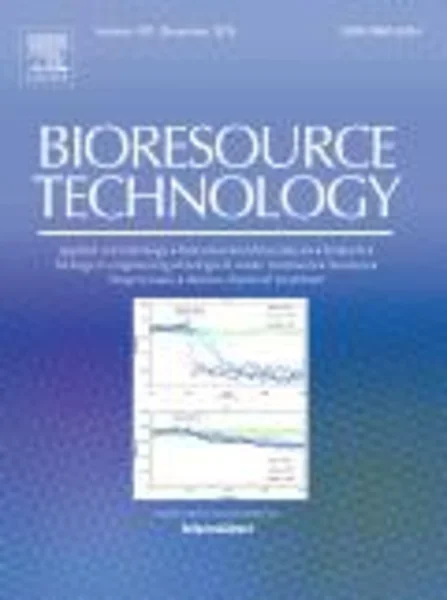-
fate of tetracycline, sulfonamide and fluoroquinolone resistance genes and the changes in bacterial diversity during composting of swine manure
جزئیات بیشتر مقاله- تاریخ ارائه: 1390/01/01
- تاریخ انتشار در تی پی بین: 1390/01/01
- تعداد بازدید: 912
- تعداد پرسش و پاسخ ها: 0
- شماره تماس دبیرخانه رویداد: -
this study monitored the abundance of antibiotic resistant genes (args) and the bacterial diversity during composting of swine manure spiked with chlortetracycline, sulfadiazine and ciprofloxacin at two different levels and a control without antibiotics. resistance genes of tetracycline (tetq, tetw, tetc, tetg, tetz and tety), sulfonamide (sul1, sul2, dfra1 and dfra7) and fluoroquinolone (gyra and parc) represented 0.02–1.91%, 0.67–10.28% and 0.00005–0.0002%, respectively, of the total 16s rdna copies in the initial composting mass. after 28–42 days of composting, these args, except parc, were undetectable in the composting mass indicating that composting is a potential method of manure management. polymerase chain reaction-denaturing gradient gel electrophoresis analysis of bacterial 16s rdna of the composting mass indicated that the addition of antibiotics up to 100, 20 and 20 mg/kg of chlortetracycline, sulfadiazine and ciprofloxacin, respectively, elicited only a transient perturbation and the bacterial diversity was restored in due course of composting.
مقالات جدیدترین رویدادها
-
استفاده از تحلیل اهمیت-عملکرد در ارائه الگوی مدیریت خلاقیت سازمانی و ارائه راهکار جهت بهبود
-
بررسی تاثیر ارزش وجوه نقد مازاد بر ساختار سرمایه شرکت های پذیرفته شده در بورس اوراق بهادار تهران
-
بررسی تأثیر سطح افشای ریسک بر قرارداد بدهی شرکت های پذیرفته شده در بورس اوراق بهادار تهران
-
بررسی تأثیر رتبه بندی اعتباری مبتنی بر مدل امتیاز بازار نوظهور بر نقد شوندگی سهام با تأکید بر خصوصی سازی شرکت ها
-
تأثیر آمیخته بازاریابی پوشاک ایرانی بر تصویر ذهنی مشتری پوشاک ایرانی (هاکوپیان)
-
بررسی پارامترهای تاثیر گذار در شناسایی هویت معماری ایرانی در معماری ساختمان های دولتی (نمونه موردی سفارتخانه)
-
اثرچشمه اتصال بر رفتار اتصالات با مقطع کاهش یافته و مقطع کاهش یافته به روش بال سوراخ شده بر منحنی شکنندگی تحت زلزله های حوزه نزدیک
-
مدلسازی عددی روش پیش تحکیمی قوس چتری پایپ روفینگ در تونل ها (مطالعه موردی تونل راه اصلی میانه- سد شهریار)
-
اثر بخشی گرایش و التزام عملی به نماز بر روی اضطراب آشکار دانش آموزان دختر پایه ششم شهرستان جویبار
-
simulation of lab-scale homogenous fractured blocks
مقالات جدیدترین ژورنال ها
-
مدیریت و بررسی افسردگی دانش آموزان دختر مقطع متوسطه دوم در دروان کرونا در شهرستان دزفول
-
مدیریت و بررسی خرد سیاسی در اندیشه ی فردوسی در ادب ایران
-
واکاوی و مدیریت توصیفی قلمدان(جاکلیدی)ضریح در موزه آستان قدس رضوی
-
بررسی تاثیر خلاقیت، دانش و انگیزه کارکنان بر پیشنهادات نوآورانه کارکنان ( مورد مطالعه: هتل های 3 و 4 ستاره استان کرمان)
-
بررسی تاثیر کیفیت سیستم های اطلاعاتی بر تصمیم گیری موفق در شرکتهای تولیدی استان اصفهان (مورد مطالعه: مدیران شرکتهای تولیدی استان اصفهان)
-
سیره نگاری پیامبر در غرب اسلامی
-
رویکردی تطبیقی بر قرارداد ارفاقی در حقوق ایران، انگلیس و فرانسه
-
مطالعه نقوش انسانی در فلزکاری ایران در قرن چهاردهم میلادی با تأکید بر آثار موجود در موزه متروپولیتن
-
استراتژی های توانمندسازی منابع انسانی شاخصی در اجرای اثربخش مدیریت عملکرد
-
compliance with planning standards related to the setbacks around domestic buildings: empirical evidence from kenya




سوال خود را در مورد این مقاله مطرح نمایید :